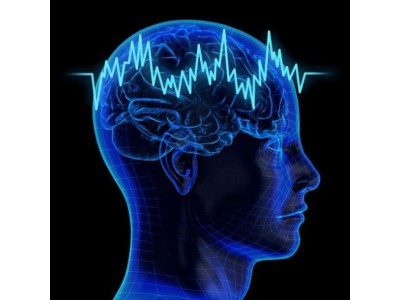 Even though mankind has long received wide access to information, many prejudices still exist among us regarding known illnesses. One such disease is epilepsy.
Even though mankind has long received wide access to information, many prejudices still exist among us regarding known illnesses. One such disease is epilepsy.
What is epilepsy? This is an illness characterized by recurrent seizures in the form of involuntary convulsions and cramps in the limbs or throughout the body. Often a person loses consciousness and sometimes — loses control over the ability to control the work of the bladder or intestine.
This disease, beyond doubt, is dangerous for health and frightening to others. Nevertheless, it occurs quite often, so today we will try to learn more about it. This will help us better understand this issue, perhaps even help people who are ill with this disease and dispel some myths about this ailment.
First, keep in mind that this is not a mental illness. Just 30 years ago, the society was sure that people diagnosed with epilepsy should be treated only by psychiatrists. In fact, this illness belongs to the field of neurology, and not psychiatry. The reason is that the basis of its nature is the violation of convulsive activity of the brain, or, in more precise scientific language, using the epilepsy definition, paroxysmal pathological activity of neurons in the cerebral cortex.
Possible epilepsy causes:
- Stroke
- Other cerebral vascular lesions
- Tumors
- Tick-borne encephalitis
- An excessive drop in blood sugar
- Hepatic insufficiency
As we see, these illnesses have nothing to do with psychiatry.
Epilepsy is not a fatal disease. People do not die from it. But the special danger of this disease lies in the fact, that an epileptic seizure can catch a person at the most inopportune moment — while driving a car, at the edge of the cliff, while swimming at depth. In such cases, a person during an epileptic fit can actually die. In the end, if a person falls on the stones at the time of an attack, then he o she can get a serious head injury.
As for the disease itself, with the modern development of medicine in 70% of cases, medical professionals can guarantee a remission — that is, a state when the disease does not manifest itself for years, and often — for the rest of life.
Moreover, after taking a course of treatment, about half of the patients will never again need even maintenance doses of drugs, and forget for ever that they once had such a disease. The range of medications designed to fight epilepsy is so broad that a whole list of them would take many pages. Therefore, every patient is able to find own ideal remedy. However, usually for treatment are used a few medical products at once. The most famous auxiliary epilepsy medication is Lamictal Dispersible.
Another important fact: an epileptic attack not necessarily looks like a scene from a horror movie. A person not always falls on the ground, has terrible cramps and beats the head against asphalt, bites the tongue and the lips and the chin are covered with foam.
Such a picture in real life happens very rarely. Epilepsy symptoms are so short-lived and unobtrusive that afterwards even the person himself does not know that something wrong has just happened. To the casual observer it looks like this: a person during a conversation suddenly begins to blink often, the breathing rate changes slightly, the person stiffens for a while — as if just distracted from the conversation. At this point, the ill person simply loses its connection with the outside world for a minute or three, and then returns to it again, as if nothing happened.
Many people believe that this illness always manifests itself in early childhood and if you did not have any problems with the health when you were a toddler, then in your adult life you will not experience epileptic seizures.
This is not quite true. Not 100%, but 70% of patients with epilepsy, really, first experienced seizures in childhood. The causes of childhood epilepsy often become birth trauma, such as oxygen starvation during pregnancy or childbirth (hypoxia), any congenital malformations of the brain, intrauterine infections, and so on.
Sometimes women suffering from epilepsy are afraid to have children, because they do not want to condemn their child to life overshadowed by the disease. But medical experts say: there is no need to give up the joys of motherhood. The whole experience of medicine in recent years shows that in 95% of cases a woman suffering from epilepsy, but taking appropriate medications, will give birth to a healthy child. In this case, the disease does not affect the course of childbirth and the state of pregnancy, does not harm the health of the mother herself. Moreover, during pregnancy, in the organism of a future mother, are activated some additional protective mechanisms, and subsequently attacks should even become much rarer.
Epilepsy is not at all a childhood illness and adults are at risk too. After all, the second wave of epilepsy is due to a mature and even old age. In this case, epilepsy is usually a consequence of craniocerebral injuries and strokes.
By the way, if we are talking about childhood illnesses. Some people believe that expansive children prone to hysterics might develop epilepsy. It’s a delusion. It is strange that this weird statement is common even among pediatricians. How is it really?
In reality, even disposition to fainting when crying or increased excitability and hysteria of a child have nothing to do with epilepsy. The truth is this: the chances that the child now or in the future will have epilepsy are the same for excitable as well as very quiet children.
What can provoke an attack? Some people think that this requires some kind of sharp stimuli, for example loud noises or glimmer of bright light. But no matter how bright and flickering the light in the room is, it does not necessarily is an epileptic seizure trigger. Secondly, the reasons for the attack can be very different, for example:
- Stress
- Excessive use of alcohol
- Drug addiction
- Lack of sleep
- Fatigue
- Lowering blood sugar due to attack of hunger
- Menstruation
- Fever
An attack can be caused by the administration of certain groups of drugs, for example, antidepressants, anxiolytics and antipsychotics. Therefore it is very important to discuss medications you use with your health care provider every time you discuss you condition. If you want to learn more about drugs that you use, you can enlist the help of the Internet. For example, if you visit a web site of an Italian online pharmacy, you can find hundreds of instructions to medicines.
So what conclusion can be drawn? Epilepsy is not a verdict; you can and need to successfully fight this illness.



